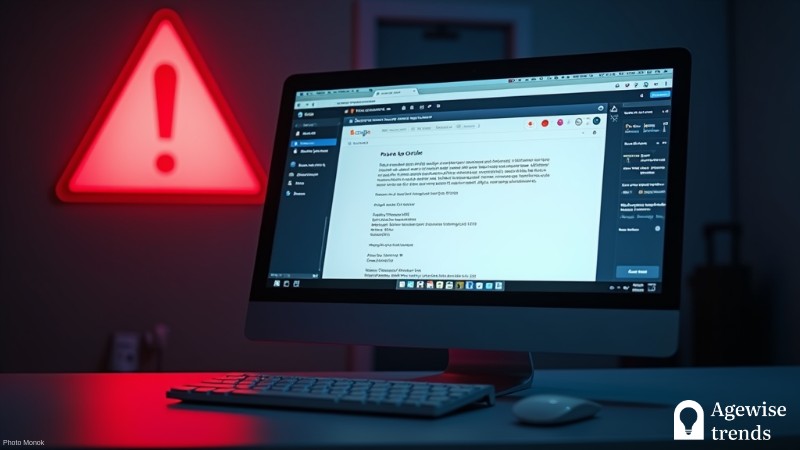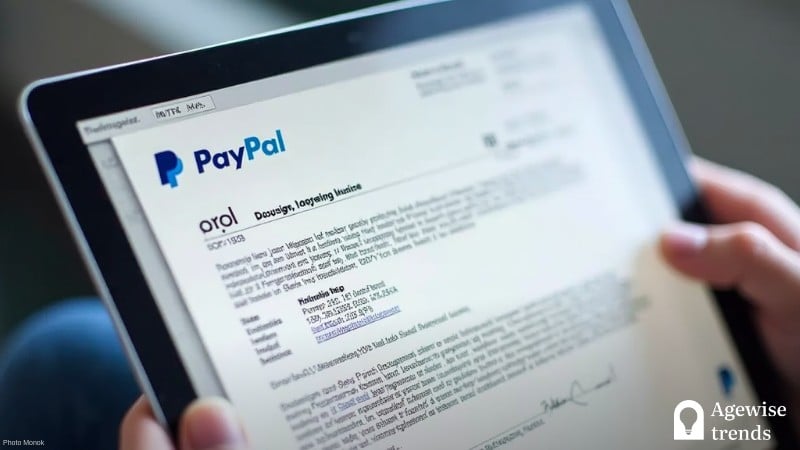The digital landscape faces growing threats to online security, with sophisticated phishing attacks increasingly targeting Gmail accounts.
AI-powered scams have become more effective at bypassing security measures, often preying on unsuspecting users. Older individuals who may be less familiar with evolving online threats are particularly vulnerable.
The Federal Bureau of Investigation (FBI) has identified these AI-driven attacks as serious risks that demand attention. In response, the agency has issued warnings urging Gmail users, especially those less accustomed to recognizing digital scams, to stay alert.
Key Takeaways
The FBI warns of an increase in AI-driven phishing scams targeting Gmail accounts, particularly older users.
- AI-powered phishing attacks have surged by nearly 50% this year and now make up 4.7% of all phishing attempts.
- Malicious links are the primary tactic used in these attacks, with hackers tricking recipients into clicking on them.
- To enhance security, Gmail users should enable two-factor authentication (2FA), keep software updated, and avoid sharing personal information online.
Rise in AI-powered phishing attacks
The latest Hoxhunt Phishing Trends Report reveals a nearly 50% surge in phishing attacks since the beginning of the year, with many successfully evading traditional security defenses.
AI-generated threats now make up 4.7% of all phishing attempts, underscoring the increasing sophistication of these scams.
These attacks often use deceptive emails or text messages to trick recipients into clicking malicious links or sharing personal information.
The FBI advises Gmail users to carefully check email addresses and URLs, particularly those who may not regularly scrutinize online communications, as even minor discrepancies can signal fraudulent activity.
Malicious links remain the top phishing tactic
Cybersecurity company VIPRE’s research shows that in 70% of phishing cases, hackers use malicious links as their primary method to exploit victims.
To reduce risk, individuals, including older adults and those less familiar with digital threats, should avoid opening unsolicited attachments or clicking suspicious links in emails. The safest approach is to verify requests by searching for official contact information and reaching out directly.
A successful phishing attack can have serious consequences, granting attackers access to Gmail accounts and other linked Google services. Beyond basic precautions like avoiding unsolicited emails or calls, additional security measures can offer stronger protection.
Enabling two-factor authentication (2FA) is one of the most effective ways to prevent unauthorized access.
For those unfamiliar with 2FA, this feature adds an extra layer of security, such as a code sent to a mobile device to confirm logins.
Using strong, unique passwords and regularly reviewing account activity can also help detect suspicious behavior early.
Enhancing Gmail security
Enhancing security beyond two-factor authentication (2FA) can provide stronger protection against cyber threats. Implementing additional measures such as biometric authentication or hardware tokens adds another layer of defense.
Keeping software updated with the latest security patches is equally vital in addressing vulnerabilities that attackers could exploit. Regular updates help mitigate potential weaknesses before they become entry points for cybercriminals.
Another key precaution is being mindful of sharing personal information online. Scammers often gather details to craft targeted attacks, making it essential to limit exposure and stay cautious.
The FBI emphasizes the importance of staying informed and proactive in safeguarding digital assets against increasingly sophisticated threats. Adopting best practices and remaining vigilant can significantly reduce the risk of falling victim to AI-driven phishing scams targeting Gmail accounts.
As cybercriminals refine their tactics, these precautionary steps become even more critical, helping individuals stay ahead in the ongoing battle against online fraud.
Actions to take when targeted by a phishing attack
If a phishing attempt is suspected, reporting the email or message to Google and filing a complaint with the FBI’s Internet Crime Complaint Center (IC3) can help minimize potential harm.
Taking swift action is essential, as it can reduce the impact and help authorities identify those responsible for these schemes.
Older individuals or those unfamiliar with phishing response procedures may benefit from seeking assistance from a trusted contact or official support service to ensure a secure resolution.
Following security recommendations and implementing protective measures, Gmail users can strengthen their defenses against increasingly sophisticated phishing attacks.
Staying informed about emerging threats and taking proactive steps to safeguard digital identities are vital for safely navigating today’s complex online environment.















